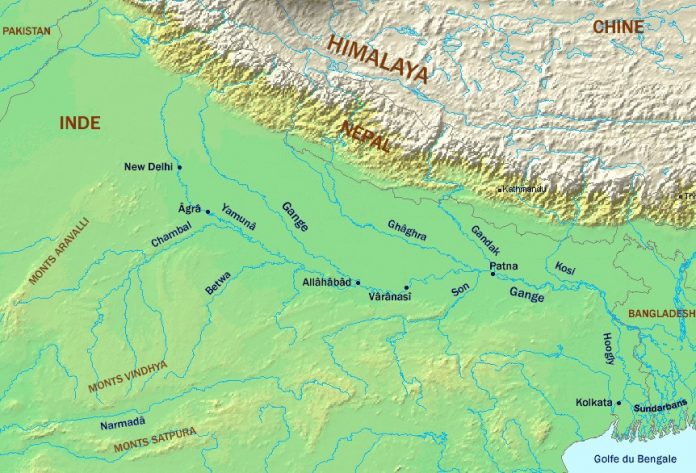After suspending Indus Waters Treaty with Pakistan, India is now pressuring its southern neighbor Bangladesh to renegotiate a water-sharing agreement with the argument that the country needs more water to meet its rapidly growing development requirements.
The Indian move comes amid recent geopolitical tensions between India and its South Asian neighbors Pakistan and Bangladesh as well as impending climate change implications.
Pakistan and India fought a high-intensity conflict from May 7 to 10, after India attacked Pakistani cities in the aftermath of April 22 terror attack in Pahalgam area of the disputed Kashmir territory in the Himalayas – a strategic source of water for both countries.
Islamabad, which fought Indian aggression and downed six of its warplanes, has lambasted the Indian move to unilaterally suspend the treaty, and warned that it would use all its power to receive its share of water.
In the south, India’s relations with Bangladesh have nosedived since ouster of pro-India prime minister Hasina Wajid’s government in a popular uprising last year. Dhaka recently cancelled a defense deal with India.
While India and Pakistan signed the World Bank-brokered Indus Waters Treaty in 1960, New Delhi entered a water-sharing arrangement with Bangladesh in 1996.
India’ s pressure on Dhaka to review and renegotiate the terms of The Ganga River Water Treaty comes before it expires next year, leveraging the time in its favor.
The Indian Express newspaper reported that New Delhi has told Dhaka that India needs more water than before to meet its increasing developmental needs.
Bilawal Bhutto warns India’s water war on Pakistan could lead to nuclear conflict
According to the paper, the renegotiated treaty will likely span 10 to 15 years period.
The Ganga Water Treaty facilitates water distribution between the two South Asian countries, particularly around Farakka Barrage during the lean season.
India and Bangladesh have long been at odds over sharing trans-boundary Ganga River water.
“Before Pahalgam, we were inclined to extend the treaty for another 30 years, but the situation changed drastically afterward,” a senior officer at India’s Ministry of External Affairs, told the newspaper.
South Asia’s sizzling summer – a window into climate-hit future
Farakka Barrage was built to continuously divert 40,000 cusecs of water into a feeder canal for Kolkata Port Trust now known as Syama Prasad Mookerjee Port, Kolkata.
“The 1996 treaty has disrupted this arrangement, leading to issues such as slope failure, bed erosion, and heavy siltation in the KPT, which has reduced its navigational efficiency. Additionally, the NTPC plant there is facing water crisis,” the official said, speaking in the Indian perspective.
Meanwhile, global warming is hanging over South Asian with a spate of dangers in the form of flooding, drought and other natural disruption and disasters.
The International Centre for Integrated Mountain Development warned in a recent report that South Asia recorded its lowest snow persistence – the duration that snow remains on the ground-in 23 years.
Global warming: Many glaciers will not survive the 21st century
The continuing downward trend threatens to reduce water availability in major arteries like the Indus, Ganges and Brahmaputra rivers.
Meanwhile, Pakistan is still recovering from back-to-back floodings in recent years, which some experts say have intensified in the face of climate change affecting the globe.
Another ICIMOD study earlier feared that as much as 80 percent of the region’s glaciers face the danger of disappearing by early next century.

Follow for more: Twitter (X) | Facebook | Instagram | LinkeIn















